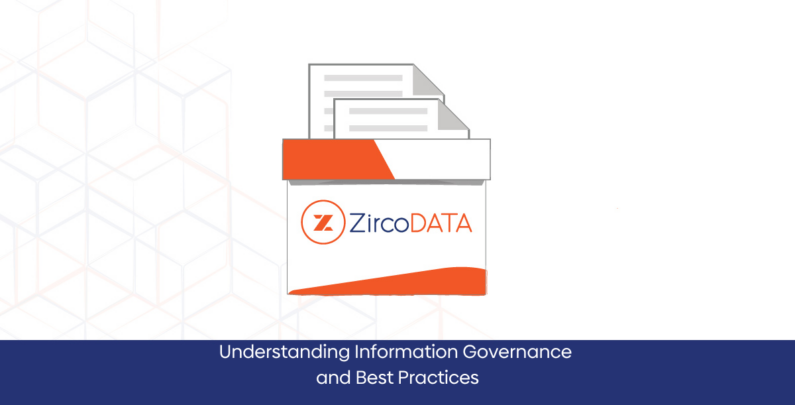
Understanding Information Governance and Best Practices
Every February, a global event emphasises the need for diligent information management in the fast-paced digital era we inhabit. This event shines a light on the methodologies, tools, and individuals who strive to enhance the utilisation, significance, and security of data.
With the exponential growth of information and the adoption of novel technologies by many entities, comprehension of information management’s role in the endurance and triumph of businesses is crucial. Information management is a progressive field, with its optimum methodologies continuously being developed and perfected. In celebration of this upcoming global event, we present the top five principles for executing an effective and secure information management strategy.
Your Information is a Treasure Trove
Information management simply means taking care of a company’s data. This encapsulates all data generated within a business – employee records, payable accounts data, innovative ideas, website content, client information, emails, social media posts, etc. Information management covers the myriad policies, procedures, structures, and processes that companies must adhere to when producing, managing, and distributing data.
In a world where 2.5 quintillion bytes of data are generated daily, and data breaches are more a matter of ‘when’ rather than ‘if,’ companies that haven’t established an information management policy need to act urgently. A well-planned strategy won’t just guard your company against breaches, it will also enhance productivity and optimise efficiency. Companies with an existing policy should regularly examine and revise their procedures to ensure they cater to all forms of company-produced data.
The Objective of Information Management
Given the unique nature of each organisation, you will encounter challenges and objectives that are particular to your business. Consequently, there isn’t a universal solution for an effective information management program. However, there are certain widely-accepted best practices.
The inception of a robust information management policy involves identifying crucial data relevant to your organisation. Once resources are devoted to information management, the programs should be scrutinised for both success and compliance. The following best practices can help in execution and can be tweaked to suit your company’s needs.
- Promote interdepartmental collaboration — The top executives of the company should be the ones endorsing the initiative to secure support across different departments. Departments like legal and IT should collaborate to synchronise company initiatives.
- Implement change management — Compliance is vital in information management. A high level of authority is required, and the process of improvement should be viewed as an ongoing journey, efficiently managed to facilitate change. When a new program is rolled out, secure a high-level executive sponsor.
- Establish training initiatives — At the launch of a new information management project, training programs become crucial. Such training should be compulsory for everyone in the organisation and should be tailored to your business’s specific needs, focusing on the users’ work settings.
- Organise regular meetings — Your information management council or multidisciplinary team should meet frequently (at least quarterly) to assess performance reports, new technology adoption, budget issues, and management changes. Strategies should be altered based on the insights gathered in these meetings.
- Rely on technology assistance — Though a hands-on approach is vital, some degree of automation is necessary at every stage of an information management program’s life cycle. This might include data analytics and automatic classification tools. If possible, automate non-compliance detection and self-assessment monitoring.
Whether your organisation is just starting to establish a clear information management policy or reassessing current procedures, these best practices will aid in achieving your organisational goals and safeguarding your essential business data.

Recent Comments